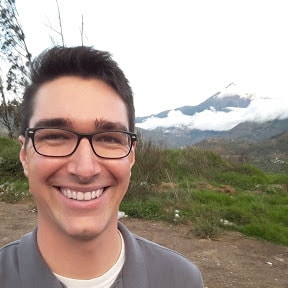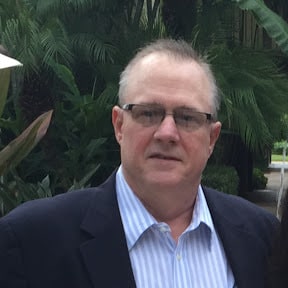At work today, a coworker told me about an article he saw on Yahoo Finance that talked about how much money people have saved for retirement. And it got me concerned.
The article summarized some data gathered by the U.S. Census Bureau, so these are statistics for the U.S. population. But I think that the issue that they raise probably exists in most developed countries throughout the world.
The issue is that most people don’t start preparing for retirement early enough—and this has huge implications.
I want to share some of the numbers with you. But first, let me define a key term they use in the article. That term is net worth. Most of you have probably heard of net worth. But for those who haven’t, net worth is the sum of all of your assets (cash, investments, property, etc.) minus the sum of all of your liabilities (any money you owe). The following numbers represent the U.S. population in 2011.
- The median net worth of people up to age 35 was $6,676
- The median net worth of people ages 35 to 44 was $35,000
- The median net worth of people ages 45 to 54 was $84,542
- The median net worth of people ages 55 to 64 was $143,964
- The median net worth of people ages 65 and over was $170,516
So in the years of retirement, half of all U.S. residents had $170,516 or less. 90% of U.S. residents under age 35 had $153,616 or less. Now, $153,616 and $170,516 may seem like fairly big numbers, and to a lot of people they are, but consider what that means for a retired person. For most retired people, their net worth isn’t increasing because they no longer have income. So they have the rest of their life to live off of government support and whatever they have saved up.
To illustrate, let’s talk through an example.
Let’s say that a 65 year old man has the median net worth of $170,516. Let’s say that all of that net worth is invested in assets that will earn him an annual return of 7%. This is a completely reasonable return for a fairly conservative stock and bond based mutual fund. Let’s also say that he expects to live 25 more years to the age of 90. That means that this $170,516 has to last 25 years.
Based on these assumptions, this man will have a little under $15,000 to live on each year. That’s it. $15,000. For comparison, the median household income in the U.S. was $52,250 in 2013. $15,000 is barely above the poverty line for a 1-person household in the U.S. But no less than half of all retirement-age residents of the U.S. have only that much to their name.
Also consider that a person’s property is included in that number. And given that most homes in the U.S. are worth over $100,000, that means that this man we’ve been discussing probably has much less than $170,516 in invested net worth. In fact, most of that is probably tied up in a house. And if it’s not, if he’s renting his home and actually has the full $170,516 invested, then that just means that his monthly expenses also include rent.
Can you see the dire situation that this man is in?
This man represents half of the residents of the U.S. and probably a significant portion of people outside the U.S. in developed countries.
Now, I don’t want you to get too hung up on net worth. Honestly, it’s not the most important number. What’s actually important is cash flows. Cash flows are exactly what they sound like. They are the flow of money either toward you or away from you. Money we spend is negative cash flow. Money we bring in is positive cash flow. In general, people with higher net worth have the ability to bring in more money, because they have money they can invest. In contrast, people with lower net worth typically have less to invest and therefore struggle to bring in as much money.
I also don’t want you to confuse net worth with the intrinsic worth that all people have. I truly believe that all people have value in society and that their value isn’t tied to their bank accounts. Net worth only refers to that equation of assets minus liabilities, and nothing more.
So now that we’ve established that, let me explain how to prevent yourself from falling into the same situation.
The answer is simple.
Invest now.
No matter what age you are, it’s time to start investing in assets that will earn you more money. This is the key principle that makes some people wealthy while others get stuck living paycheck to paycheck. Those who set some money aside, invest it, and learn to live on less than they earn, will end up with much more than those who spend their money as soon as they earn it, or worse, before they earn it.
Let me illustrate the difference between beginning your investing at the age of 25 vs. starting later in life.
Most 25-year-olds think they don’t need to worry about saving for retirement. After all, it’s still years away. 40 years if you use the official age for  social security benefits. But if at the age of 25 you start investing just $50 per month into a plain old mutual fund that earns a long-term average of 10% per year, then at age 65 those $50 per month will be worth about $265,000. But you will only have actually invested $24,000 over those 40 years.
social security benefits. But if at the age of 25 you start investing just $50 per month into a plain old mutual fund that earns a long-term average of 10% per year, then at age 65 those $50 per month will be worth about $265,000. But you will only have actually invested $24,000 over those 40 years.
Some people might say, “I don’t make that much money yet, and I’ll have more to set aside when I’m a little older.” So they wait. Well, to end up with the same amount of money, someone who waits until 35 will have to invest not $50, not even $100 per month. They’ll have to invest $134 per month, totaling over $48,000. That’s over twice as much that they’ll have to put away to equal the same amount at age 65.
So what if they wait until age 45 to start?
Then, they’ll have to invest $386 per month, totaling almost $93,000 over those 20 years from 45 to 65.
Do you see what I’m getting at?
If you want to save up for retirement I have two suggestions.
- Invest your money. Use it to buy assets that pay you back.
- Invest early. Start as early as you possibly can.
If you’re 18 and just getting out of high school, I understand that college is expensive and you might not have money to set aside. I get that. If you don’t, that’s okay. Just start as soon as you can.
If you’re 50 and you haven’t started yet, then you have some catching up to do. But you need to start. You can’t go back in time, so start now.
Whatever your situation, I suggest you find a financial adviser that you trust. They will be an excellent resource to help you invest your money wisely to meet your personal financial goals. Everyone’s goals are different. How much money you need when you retire depends on a lot of things. And how much you need to save depends on how much you want when you retire, how long you have until you retire, and what you’re going to invest in.
It’s not terribly complicated, but it’s not terribly simple either. There are lots of options and they can be confusing. So if you’re not confident in your own knowledge of investments, get some help. A good financial adviser is well worth their cost.
But whatever you do, do it now. None of us is getting any younger.
Distribution of Household Wealth in the U.S.: 2000 to 2011







